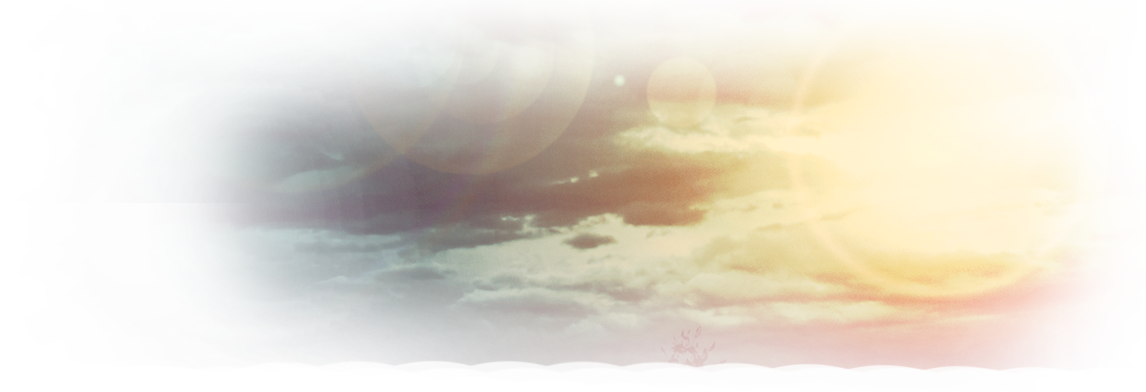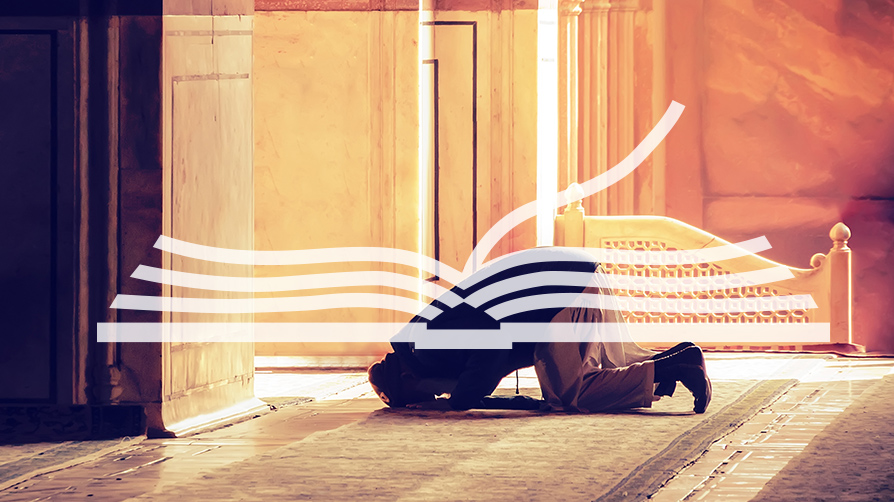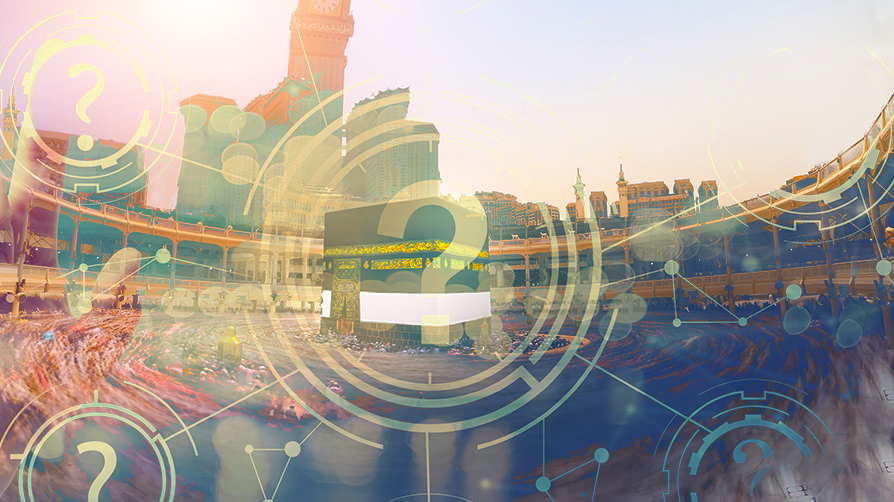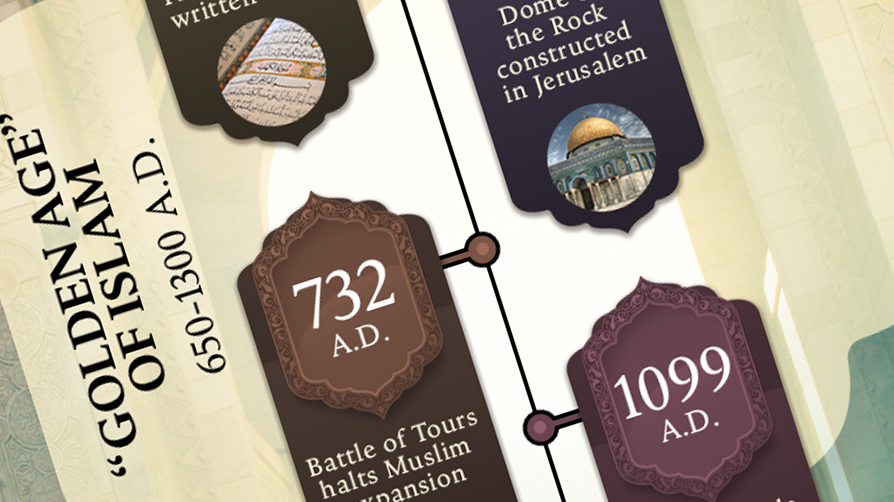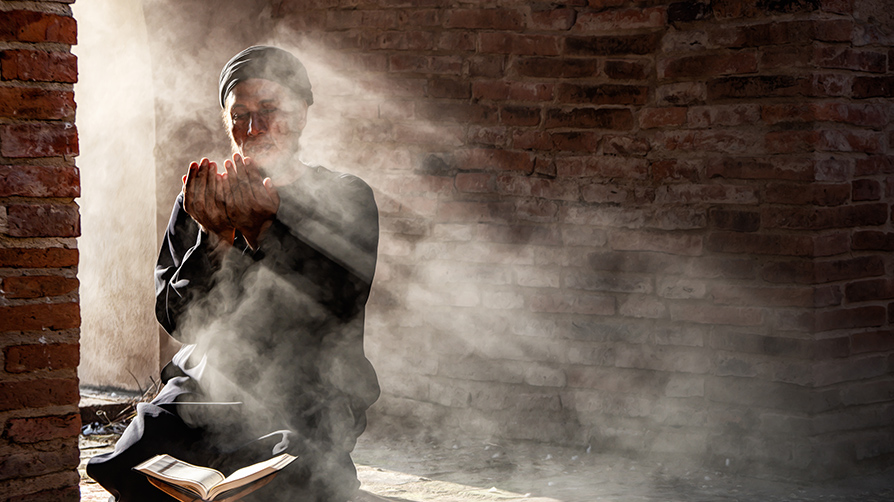

Dr. David Jeremiah Presents
Living inthe Ageof Signs
Online Destination

Living in the Age of Signs
Online Destination

April Showers: Showers of Peace
Today’s Devotion:
April Showers: Showers of Peace
After World War I, the League of Nations was formed to ensure peace. Ineffective, soon World War II was underway, and the United Nations replaced the League of Nations in the aftermath. But peace has never held.
Peace is not just missing among nations; peace is missing in many hearts as well. And when we see conflicts in the world, it’s easy to understand why so many live with unrest and worry. But the gift of the Holy Spirit to the Church provides the power to live in peace: “But the fruit of the Spirit is love, joy, peace” (Galatians 5:22). Someday, when Christ establishes His kingdom on earth, He will replace human efforts at worldwide peace with His own righteous and loving peace. The Prince of Peace will finally restore peace to all the earth.
Until that day, enjoy showers of peace as the Holy Spirit empowers you to live a life “anxious for nothing” as the peace of God guards your heart and mind (Philippians 4:6-7).
Few things more adorn and beautify a Christian profession than exercising and manifesting the spirit of peace.
A. W. Pink
In the fourteen hundred years since Muhammad founded Islam, Christianity and Islam have been at odds, but this battle remained a distant reality for Christians in the West until the World Trade Center attack in 2001. With an estimated 3.45 million Muslims living in the U.S. today, it is critical for God's people to have a basic understanding of Islamic beliefs as we seek to share the Gospel and interpret signs of the End Times. Here is a brief overview of Islam's basic beliefs.
Islamic Ideas About God
"There is no god but Allah, and Muhammad is the messenger of Allah." —The Shahada (in English, messenger can also be translated as prophet).
The Christian doctrine of a Trinity is blasphemous.
God is distant, angry, and unknowable. His judgment can only be held back through adequate submission.
In Islam, Jesus was one of many prophets, but He was not the Son of God.
Islamic Ideas About Sacred Writings
Muslims acknowledge the Law of Moses, the Psalms of David, and the Gospel of Jesus Christ.
The writings of the Bible were superseded by the Qu'ran (even though the quality and comprehensibility of the Qu'ran is far inferior to the Bible from a scholastic and historical perspective).
Muslims claim the Bible used by Jews and Christians has been distorted. Any biblical teaching that disagrees with the Qu'ran is assumed to be inaccurate.
Hadith are not part of the Qu'ran but are used for its interpretation and application.
"Muslims are the fastest–growing religious group in the world. . . . If current demographic trends continue, the number of Muslims is expected to exceed the number of Christians by the end of this century."2
The Five Pillars of Islam
Reciting the Shahada
Reciting five daily prayers
Giving alms (as an obligation, not charity) to help others
Fasting from sunrise to sunset during the month of Ramadan
Traveling to Mecca on a pilgrimage at least once in a lifetime
Note: Sunni Muslims believe jihad is the sixth pillar of Islam
Islam's Current Impact on the World
Islam is the state religion of 27 countries, making it the most common state religion in the world.1
Islamic nations control much of the world's petroleum supply, which generates tremendous wealth for those governments.
Some Muslims seek to bring the world into submission to Allah through violent means.
Other Muslims seek to expand Islam through peaceful means.
Turning Point's Ministry to the Muslim World
Since 2009, Turning Point has been broadcasting in the Middle East. There are currently 22 weekly television program releases throughout the region in English, Arabic, and Farsi. More than 2,200 Your Greatest Turning Point new believer kits have been requested in Arabic and Farsi. Here is the story of one listener:
I was devastated by my father's sudden death. I could not believe he left us, and my heart was filled with fear and depression. I later remembered that he used to watch The Kingdom SAT and enjoyed the channel's programs. So, I decided to do the same. I began to watch your programs, especially Pastor David Jeremiah. Hope began to rise inside me and I regained my trust in God. I bought a Bible and started reading. I surrendered my life to Jesus and asked for Him to forgive me.
Ama – Syria
Glossary of Arabic Terms
Ahmadiyya: | A sect of Islam that believes Mirza Ghulam Ahmad, who died in 1908, was the promised Messiah. It is a small group, but it has become influential on American school campuses. |
Ayatollah: | A spiritual leader in Shi'ite Islam, especially in Iran. |
Caliph: | A spiritual leader or representative of Islam. |
Hadith: | Collection of sayings and traditions of Muhammad. |
Hajj: | Pilgrimage to Mecca. |
Imam: | A spiritual head of Sunni Muslims who leads prayers. |
Injil: | Gospel (of Jesus) |
Isa: | The name for Jesus, which means "I hope." |
Islam: | Submission and obedience to the will of God. |
Jihad: | Often refers to a physical war against the enemies of Islam; sometimes refers to an internal, spiritual struggle. |
Muhammad: | The name of Islam's primary prophet, which means "praised." |
Muslim: | One who submits and surrenders to the laws of God (as defined by Islam). |
Ramadan: | The ninth month of the Muslim year, which occurs in spring. |
Shahada: | Confession or testimony. |
Shi'ite: | A sect of Islam that acknowledges Muhammad's son–in–law, Ali, as the rightful successor. |
Sunni: | A sect of Islam that only acknowledges the first four caliphs after Muhammad. |
Sura: | Divisions in the Qur'an. |
Zakat: | Compulsory giving to alleviate suffering. |
"90% of the Muslims in the Middle East and most parts of the Muslim world are Sunnis."3
1"Many Countries Favor Specific Religions, Officially or Unofficially," http://www.pewforum.org/2017/10/03/many–countries–favor–specific–religions–officially–or–unofficially/, accessed on February 22, 2019. 2"Muslims and Islam: Key findings in the U.S. and around the world," http://www.pewresearch.org/fact–tank/2017/08/09/muslims–and–islam–key–findings–in–the–u–s–and–around–the–world/, accessed on February 21, 2019. 3Walter Martin, The Kingdom of the Cults (Bloomington, MN: Bethany House Publishers, 2003), 437.
For Your Phone or Tablet
Official Mobile App and Lock Screens
An Excerpt from Chapter 8 of The Book of Signs
Radical Islam has a vision of its future that does not bode well for those who stand in the way. To gain a better understanding of this vision, we will look briefly at some of the goals the Islamic world hopes to achieve.
Islam Hopes to Rule the World
It is one thing to read about Muslim determination to take over the world; it is quite another to watch it happening before our eyes, as it is in Europe. The most startling social migration of our age is the Islamification of Europe. Tony Blankley of the Washington Times sounded an alarm about this Islamic infiltration:
The threat of the radical Islamists taking over Europe is every bit as great to the United States as was the threat of the Nazis taking over Europe in the 1940s…
To point out the obvious, the resurgence of a militant Islam drove America to fight two wars in Muslim countries in two years, disrupted America's alliance with Europe, caused the largest reorganization of American government in half a century (with the creation of the Department of Homeland Security), changed election results in Europe, and threatened the stability of most of the governments in the Middle East.1
We can easily see and resist the effects of jihad in militant terrorism, but we have trouble seeing and resisting the subtler strategy that the Muslims call fatah. Fatah is infiltration, moving into a country in numbers large enough to insert the influence of Islam. In places where a military invasion will not succeed, the slow, systematic, and unrelenting methods of fatah are conquering entire nations. Two Illustrations are instructive, the first concerning France:
What we're seeing in many places is a "demographic revolution." Some experts have projected that by the year 2040, 80 percent of the population of France will be Muslim. At that point the Muslim majority will control commerce, industry, education, and religion in that country. They will also, of course, control the government, as well as, occupy all the key positions in the French Parliament. And a Muslim will be president.2
Islamification is also happening in England, where Muslims are advancing their goal of dominance by taking advantage of the British policy of pluralistic tolerance. An example occurred in September 2006 when the British home secretary, John Reid, gave a speech to Muslim parents in east London, encouraging them to protect their children from becoming suicide bombers. A fundamentalist Muslim leader shut the speaker down. He ranted, "How dare you come to a Muslim area?...I am absolutely furious—John Reid should not come to a Muslim area." Muslims are not only immigrating massively to Western countries but also claiming entitlement to keep their settlements off–limits to native citizens.3
In early 2008, England's archbishop of Canterbury, Rowan Williams, gave the world a stunning example of General Sada's claim of Western naivete concerning Islamic intentions. Williams told a BBC correspondent that the growing Islamic population in Britain made it expedient to be accommodative. He said "the UK has to 'face up to the fact'" that it "seems unavoidable" that Islam's legal system, sharia law, will be incorporated into British law. His terms for this blending of laws was "constructive accommodation."4 Sharia law, derived from the Qu'ran and teachings of Muhammad, is the legal system by which Muslims are to live. In the West, the law is fairly benign and deals mainly with family and business. But in Muslim countries, it can include such things as honor killings in cases of suspected immorality.
You may hear other terms to describe the Islamic goal of world domination. For example, "biological jihad" or "demographic jihad" describes the nonviolent strategy of Muslims moving into Europe and the West and having more babies than their hosts. Within several generations they hope to repopulate traditionally Christian cultures with their own people, and they are certainly on track to reach that goal. According to a Vatican report, the Roman Catholic Church understands this: "For the first time in history, we are no longer at the top: Muslims have overtaken us."5
Islam Hopes to Return Its Messiah
In 2005, Iranian president Mahmoud Ahmadinejad was called before the United Nations Security Council to explain his determination to develop nuclear weapons. He ended his speech with this prayer: "I pray to you to hasten emergence of your last repository, the promised one, that perfect and pure human being, the one that will fill this world with justice and peace."6 The "promised one" in Ahmadinejad's prayer was a reference to the Twelfth Imam, a figure in Shi'ite teaching that parallels the figure of Al–Mahdi in Sunni teaching. In essence, both of these titles refer to the Islamic messiah who is yet to come.
Shi'a Islam believes that the Twelfth Imam can appear only during a time of worldwide chaos. Even though the hope for an Islamic messiah is surely futile, the chaos that radical Islamic leaders are creating to bring about that hope is all too real. Many of the biblical prophecies concerning the End Times will be brought about by the beliefs and actions of radical Islam. And we are beginning to feel the pressure of those impending events in the rapid spread of Islamic radicalism in our own time.
Tony Blankley, The West's Last Chance (Washington DC: Regnery Publishing, Inc., 2005); 21–23, 39.
Sada, Saddam's Secrets, 287.
Philip Johnston, "Reid meets the furious face of Islam," (London) Telegraph, September 21, 2006, http://www.telegraph.co.uk/news/uknews/1529415/Reid–meets–the–furious–face–of–Islam.html (accessed 13 March 2008).
"Sharia law in UK is 'unavoidable'," BBC News, February 7, 2008, http://news.bbc.co.uk/2/hi/uk_news/7232661.stm.
"Vatican: Muslims now outnumber Catholics," USA Today, March 30, 2008, http://www.usatoday.com/news/religion/2008–03–30–muslims–catholics_N.htm.
"Address by H.E. Dr. Mahmood Ahmadinejad President of the Islamic Republic of Iran before the Sixtieth Session of the United Nations General Assembly New York," September 17, 2005, United Nations, http://www.un.org/webcast/ga/60/statements/iran050917eng.pdf.
